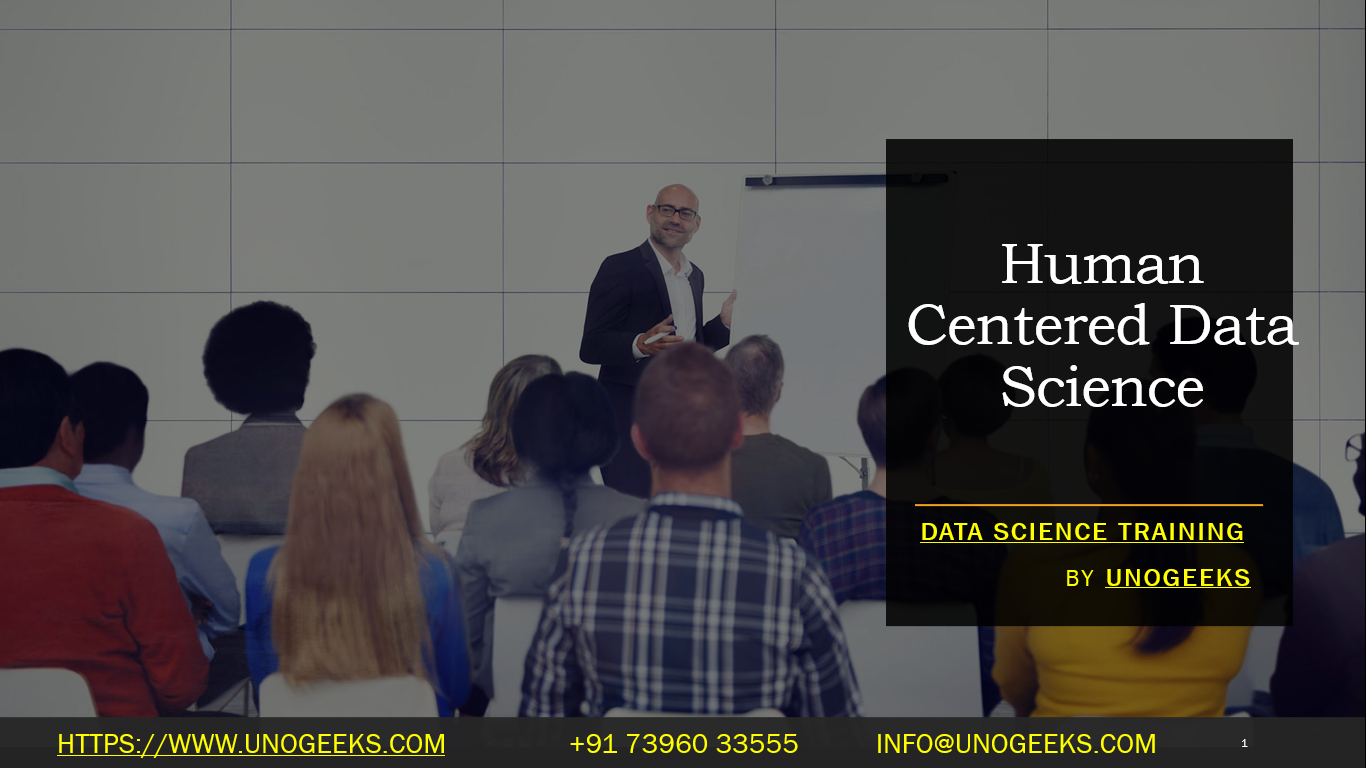Human Centered Data Science
Human-Centered Data Science is an interdisciplinary approach to data science that prioritizes the needs, experiences, and ethical considerations of people throughout the entire data analysis process. It places human well-being and ethical considerations at the forefront of data-driven decision-making. Here are key aspects of Human-Centered Data Science:
Human-Centric Focus: Human-Centered Data Science recognizes that data analysis should ultimately serve human needs, interests, and goals. It involves understanding the context in which data is collected and used, and ensuring that data-driven solutions align with human values.
Ethical Data Collection: Ethical data collection practices are essential. This includes obtaining informed consent, protecting privacy, and ensuring data is collected in a fair and responsible manner.
Transparency and Accountability: Human-Centered Data Science promotes transparency in data collection, analysis, and decision-making processes. It emphasizes accountability for the consequences of data-driven decisions.
User-Centered Design: In applications and systems developed with data science, a user-centered design approach is crucial. This involves understanding user needs, preferences, and behaviors to create intuitive and user-friendly interfaces.
Fairness and Bias Mitigation: It addresses issues of bias in data and algorithms, striving to ensure that data-driven systems do not discriminate against certain individuals or groups.
Interdisciplinary Collaboration: Human-Centered Data Science encourages collaboration between data scientists, domain experts, ethicists, designers, and other stakeholders to develop holistic solutions that consider technical, social, and ethical dimensions.
Accessibility: Data-driven applications and systems should be accessible to all individuals, including those with disabilities. Designing for accessibility is a key consideration.
Responsible AI: It involves responsible AI development, including model explainability, interpretability, and fairness assessments. Ensuring that AI systems can be understood and audited is a priority.
Continuous User Feedback: User feedback is integrated into the data analysis and system improvement processes, ensuring that data-driven solutions evolve to meet changing user needs and expectations.
Impact Assessment: Before deploying data-driven solutions, Human-Centered Data Science assesses their potential impact on individuals and society as a whole, including unintended consequences.
Data Literacy: Promoting data literacy among users and stakeholders is crucial. It ensures that individuals can make informed decisions and understand the implications of data-driven insights.
Respect for Diversity and Inclusion: Acknowledging and respecting diverse perspectives and cultural differences is central to Human-Centered Data Science.
Communication and Storytelling: Effective communication of data-driven insights is emphasized, enabling non-technical stakeholders to understand and act upon the information.
Sustainable Practices: Ensuring that data collection and analysis practices are sustainable and environmentally responsible is a consideration in Human-Centered Data Science.
Informed Decision-Making: Ultimately, Human-Centered Data Science aims to support informed decision-making that benefits individuals and society while upholding ethical and moral principles.
Data Science Training Demo Day 1 Video:
Conclusion:
Unogeeks is the No.1 IT Training Institute for Data Science Training. Anyone Disagree? Please drop in a comment
You can check out our other latest blogs on Data Science here – Data Science Blogs
You can check out our Best In Class Data Science Training Details here – Data Science Training

———————————-
For Training inquiries:
Call/Whatsapp: +91 73960 33555
Mail us at: info@unogeeks.com
Our Website ➜ https://unogeeks.com
Follow us:
Instagram: https://www.instagram.com/unogeeks
Facebook:https://www.facebook.com/UnogeeksSoftwareTrainingInstitute
Twitter: https://twitter.com/unogeeks
